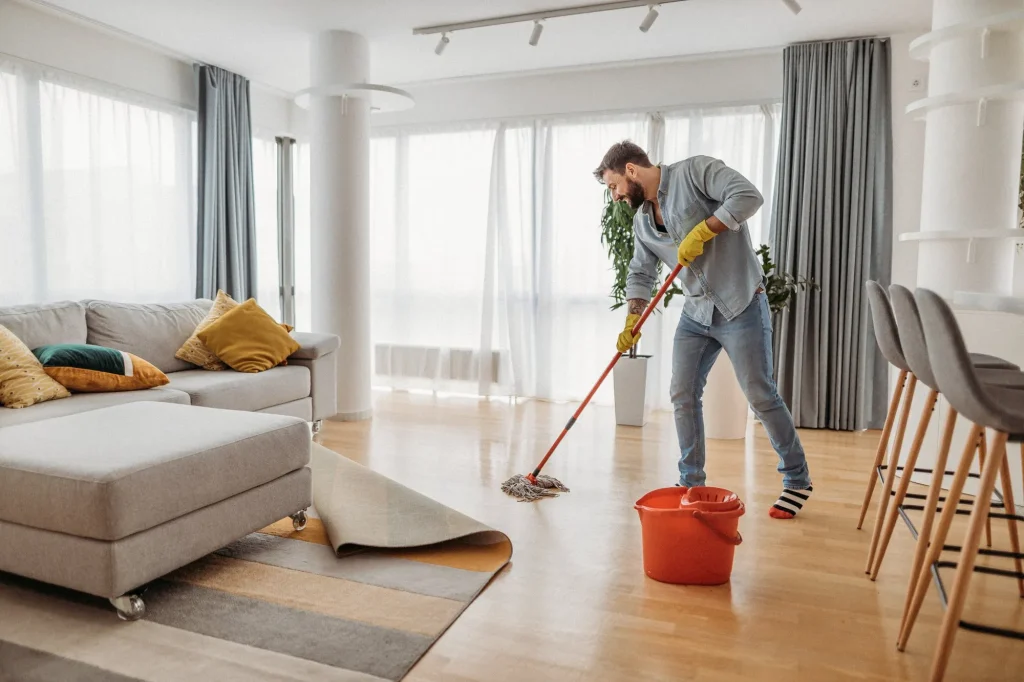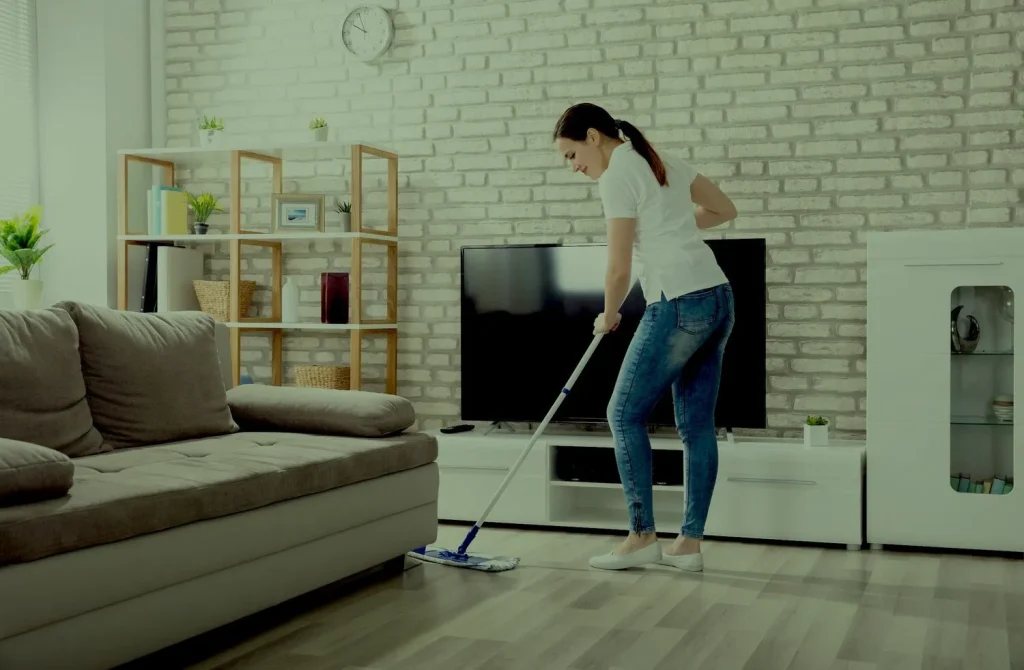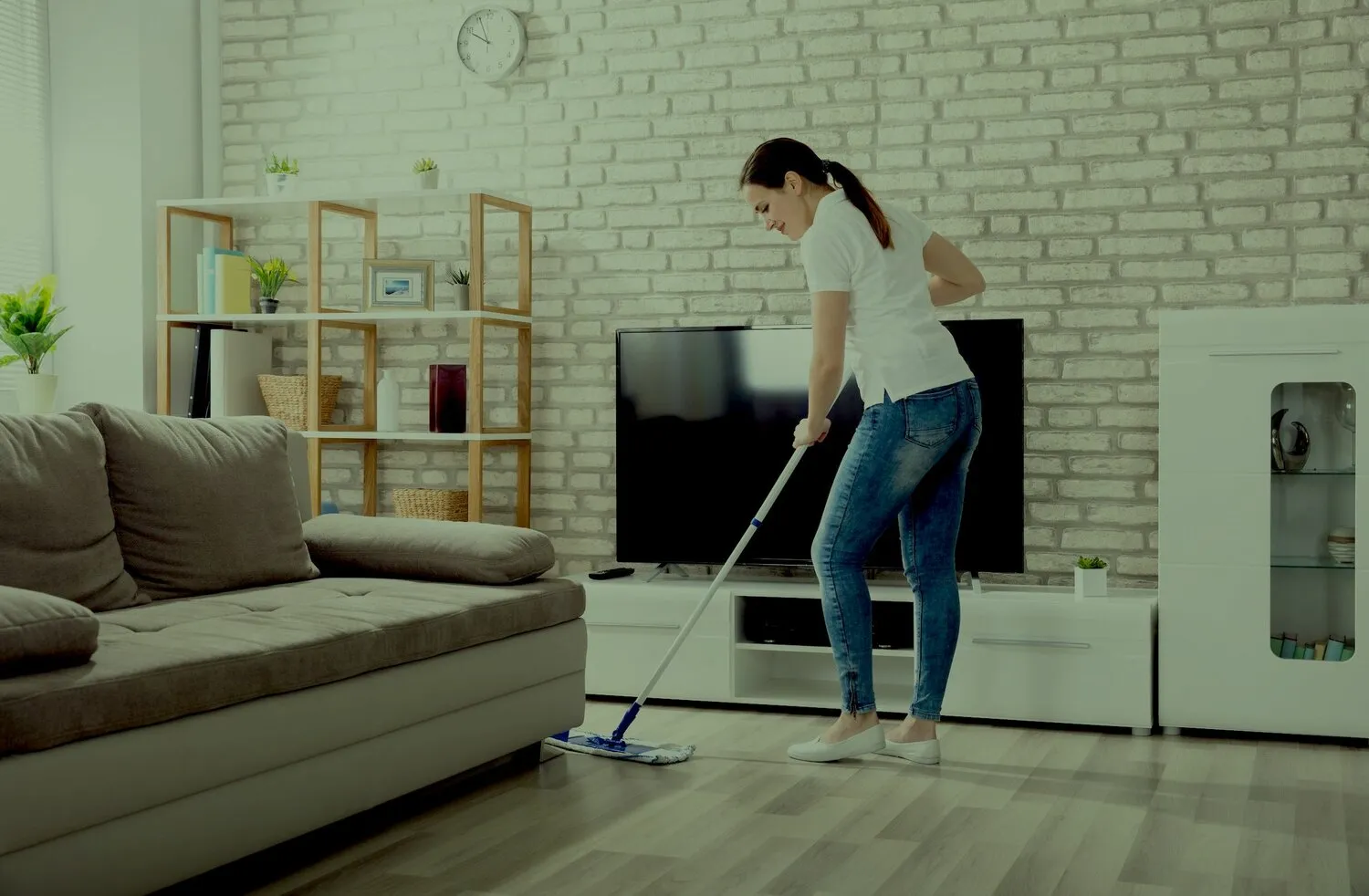A lot of people ask how often they should clean their homes. Professional cleaners and home organization experts say the answer is a balancing act: consistency is key, and it’s less about a big “Spring Clean” and more about daily, weekly, and monthly upkeep.
The best cleaning time depends on your space size, occupants, pets, and comfort level with the schedule. But experts agree that the best way to do chores is to break them up into doable, regular tasks. Here is a list of how often experts say you should clean, broken down into daily, weekly, monthly, and yearly schedules.
1. Daily “Quick Tidy” Tasks (10-30 Minutes)
These are the must-dos that keep small mistakes from turning into big problems. Regular daily cleaning builds up, making your weekly deep clean much easier.
Do the Dishes
Keeping the kitchen clean means doing the dishes every day. This simple step keeps bugs like fruit flies out and prevents them from spreading smells and sticky grease. Run the dishwasher every night or right after dinner to get things done.
Wipe Kitchen Counters
The kitchen tables stay clean and healthy if you wipe them down every day. It kills germs that live on surfaces people touch frequently. For a clean food-preparation area, quickly removing crumbs prevents bugs from finding food sources.
Make the Bed
Taking 1 minute each morning to make your bed benefits your mental health. This small action makes your bedroom look better right away by cleaning and organizing the space. Doing this first thing in the morning sets a good, productive tone for the rest of the day.
Wipe Bathroom Sink/Counter
A quick daily wipe of the bathroom sinks and counter saves time later. It prevents toothpaste, soap residue, and water spots from drying into tough film. Keeping surfaces dry and clean reduces the risk of mildew, making the bathroom feel fresher.
Quick Tidy/Declutter
Every night, do a quick restart by putting away any lost items like toys, clothes, or mail right away. Professional organizers stress the importance of finding lost things right away. This keeps small messes from growing into huge piles of stuff over the course of the week.
2. Weekly Maintenance Chores
This is your main cleaning time, so focus on areas where germs and dirt tend to accumulate. Many experts say to set aside a specific amount of time, like a few hours on Saturday, or to divide chores throughout the week.
Bathrooms (Toilets, Sinks, Showers)
Set aside time once a week to thoroughly clean the toilets, showers, and tubs. Soap scum and mildew don’t get hard over time because of this practice. To keep bath towels fresh, stop musty smells, and improve cleanliness, wash them once a week.
Floors (Vacuum & Mop)
Weekly floor care is essential, especially in areas with heavy foot traffic or in homes with pets and young kids. Dirt, pet hair, and allergens that get stuck in carpets and rugs can be removed by vacuuming. Using a mop to clean up sticky spills and dirt after vacuuming hard floors helps keep the surface clean and germ-free all week.
Dusting
Regular dusting is an integral part of keeping indoor air clean and preventing lung irritation. Make sure to wipe down all flat surfaces, like window sills, furniture, and home decor. It’s important to remember to dust light fixtures and gadgets, as the static charge they generate attracts a lot of dust and hair.
Changing Linens
For the best cleanliness, you should remove and wash all your bed linens (sheets, pillowcases, and duvet covers) once a week. Bedding traps oils and bugs, so this is very important for people with allergies and pets. Once every two weeks, if you don’t have allergies. New sheets will help you sleep better.
Garbage & Recycling
Regularly taking care of trash is essential to avoid bad smells and keep pests away. Once a week, empty all the small trash cans in the house, including those in the bathrooms and offices. Finally, make sure that all your cooking trash and recycling are taken to the curb or another designated area for disposal.

3. Monthly Deep Cleaning & Organizational Chores
Schedule time once a month for more in-depth, manageable tasks that will help you stay organized and prevent things from piling up again.
Clean Major Appliances
You should clean out your fridge thoroughly once a month, including throwing away any food that has gone bad to avoid waste and bad smells. Clean the microwave for splatters, and furthermore, run an empty cycle. The cycle uses a special cleaner, consequently removing unseen mold and residue buildup. Finally, wash interior windows and sills.
Wash Windows (Interior) & Sills
A simple way to let in much more natural light and make the rooms feel better is to clean the inside of the windows once a month. Make sure to dust the window sills as well, as these areas accumulate layers of dirt and dust that are easy to miss when you dust only once a week. This will give the room a truly sparkling look.
Scrub Baseboards
Baseboards are low areas that tend to collect a lot of dust, dirt, and scuff marks, which people don’t clean as often as they should. It is essential to wipe down these areas once a month to prevent a hard-to-remove layer of dirt from forming. The floors and walls look cleaner and better when you keep them clean.
Dust Vents & Ceiling Fans
Every month, clean your air vents and ceiling fan blades to improve your home’s air quality. The surfaces constantly move the dust that forms on them back into the air whenever the fan or HVAC system turns on. Cleaning up this buildup will improve air quality and help your systems run more efficiently.
Organize and Declutter
Use this once-a-month checkpoint to work on a small, focused project to organize and eliminate general chaos in the house. Alternatively, to keep reducing the amount of stuff in your home, try cleaning out a typically messy area like a junk drawer, organizing one shelf in a closet for thirty minutes, or collecting unused items to give away.
4. Seasonal or Annual Deep Cleaning
A full deep clean every three to six months helps keep your home’s systems running well and makes the air inside healthier. This could be your home’s “refresh button.”
Clean Carpets and Upholstery
It is essential to deep-clean rugs and upholstered furniture to keep them clean and last longer. Specifically, it removes deep-down dirt, tough stains, and allergens that normal vacuuming misses. This revitalizes fibers and improves air quality.
Clean Behind Appliances
Pull out big tools like the fridge and oven twice a year. Cleaning the floor, walls, and coils in the fridge stops dust and other things from building up. This is very important because excessive coil dust reduces performance and can start a fire.
Wash Walls and Doors
Walls, door frames, and light switches get dirty and smudged over time, especially in high-traffic areas. It’s best to use a mild cleaner every once in a while, to refresh the paint, prevent lasting buildup, make the room look brighter, and ensure it feels spotless.
Deep Clean Air Vents and Ducts
To keep your home healthy, you need to clean the air vents and ducts more deeply. As a result, the air inside your home is cleaner and your HVAC systems work more efficiently.
Inspect and Clean Pantry/Storage
When you clean for the season, you have to empty and wipe down long-term storage spaces like cabinets, freezers, and cupboards. Now is the best time to check the dates on food, rearrange, and get rid of old things, keeping the inventory neat and pest-free.
The Biggest Factors That Influence Your Schedule
There is no one-size-fits-all professional cleaning plan. Experts say to make changes based on how you live:
Pets
If you have dogs or cats, you should vacuum high-traffic areas every day and wash pet beds and throw blankets every two weeks.
Kids
More people living there means more mess and dirt. You might have to clean the kitchen and bathroom surfaces every day and sweep or mop more than once a week.
Allergies
To keep dust mites and pet hair to a minimum, dust and wash linens once a week in hot water if you or someone in your family has severe allergies.
Size
In a small apartment with limited space, you might only need to vacuum and mop the whole thing every other week. On the other hand, in a large house, it is helpful to divide the vacuuming into zones.
The Professional’s Tip: The “Clean As You Go” Method
Cleaning pros and tidiness experts advocate the “Clean as You Go” idea as the most effective habit. This is the opposite of waiting for a room to be as dirty as it can get before doing the feared deep clean. As an alternative, you can make it easier by adding small, simple cleaning chores to your daily routines. As an example, clean the stovetop quickly while you wait the two minutes for your coffee to start. Otherwise, quickly clean the glass doors as soon as you get out of the shower. This proactive plan turns a vast, complex task into a set of quick, almost easy habits that keep your home clean all the time.
Conclusion
Get over the idea that cleaning is a tremendous, stressful job. The experts say the trick is simple: consistency always beats intensity. This tier-based plan creates a healthier, more peaceful home with daily resets and bi-annual deep cleans. You can beat clutter before it even starts with the powerful “Clean as You Go” method. Consequently, it turns hectic weekend cleaning into an easy habit. If you follow this plan, you’ll quickly get your weekends back, feel less stressed, and enjoy the peace of mind that comes with always having a clean home.




